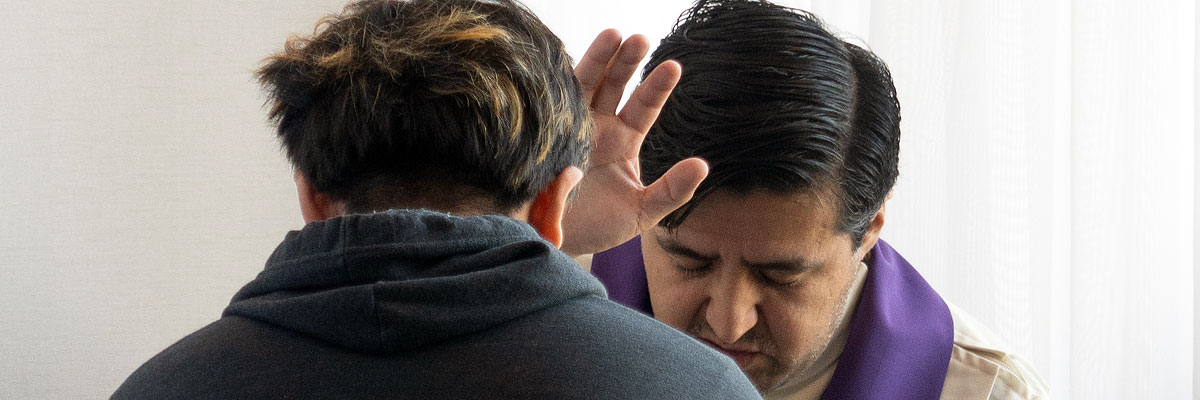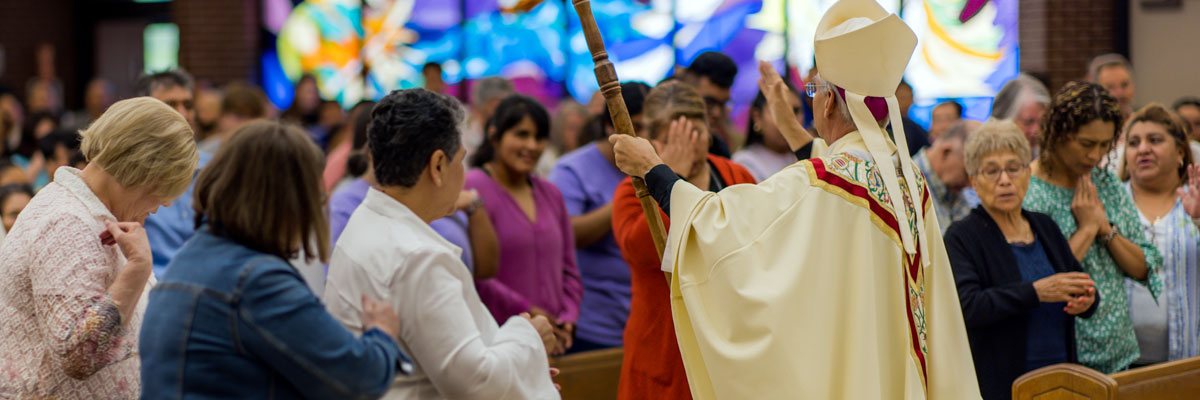Official Website of the
Catholic Diocese of Little Rock
16th Sunday in Ordinary Time, Year A
Published: July 18, 2020
Bishop Anthony B. Taylor preached the following homily at Blessed Stanley Rother Church in Decatur on Saturday, July 18, 2020.

Bishop Taylor
Farming is one of the most physically demanding and necessary occupations there is and it was even harder in Jesus' time than it is now. In those days you didn't buy seeds for planting, you set aside the best grain of each year's crop to be planted in the next — meaning a lot of a farmer's backbreaking work simply got put back in the ground.
There were no weed killers or mechanized equipment; weeds were pulled by hand and the land was plowed with mules. In those days there was no crop insurance in case of drought, fire, floods or storms, or vandalism as in today's Gospel, sabotage by enemies.
Have you ever wondered where the bad guy in the parable you just heard got the weed seeds that he went in and planted among his neighbor's wheat? You can't buy weed seeds at the store — there's no market for weeds — so he must have harvested the weed seeds himself the previous year — meaning he's been working on this sabotage for a long time.
All of us are sinners and there will always be hypocrites in the Church. There will always be people who use their church membership for selfish ends. Sometimes we do have to intervene and pull out the most damaging weeds by the roots, as with the great evil of the clergy abuse scandals, but most of the time prudence requires us to just be patient.
He had to invest the same amount of work harvesting those weed seeds as he would have had to do if it were good grain. Then he had to store those seeds until spring and then take time away from planting his own field to sneak over and try to harm his neighbor. Notice how much effort he invested in doing evil. This was not done on impulse — it was premeditated evil.
Not all mortal sins are premeditated, but as one of my seminary professors once said, you don't commit mortal sins by accident. It takes energy to commit sin, especially the really big sins. The enemy in today's Gospel invested far more energy in trying to bring down his neighbor than it would ever have taken to produce a bumper crop for himself.
And notice how the wise farmer responds: He doesn't retaliate, doesn't try to destroy his enemy's crop in revenge, doesn't set his enemy's field on fire, doesn't even take him to court. He simply does damage control as best he can, lets the weeds be for now lest he worsen the problem in a premature attempt to eradicate the weeds, puts up with it until harvest when he will separate the weeds from the wheat. He knows that the harvest that year will be twice as much work, but it can't be helped.
Of course, what Jesus is saying here is that among his followers there are weeds among the wheat, even today. And I would add that there are weeds among the wheat inside every one of us too. All of us are sinners and there will always be hypocrites in the Church. There will always be people who use their church membership for selfish ends. Sometimes we do have to intervene and pull out the most damaging weeds by the roots, as with the great evil of the clergy abuse scandals, but most of the time prudence requires us to just be patient.
God can write straight with crooked lines, he can bring good out of evil, he can turn today's biggest sinners into tomorrow's greatest saints — for instance, St. Augustine. And anyway, he's the one who will sort it all out in the end, not us. In the meantime, there will always be a certain amount of brokenness that we just have to sort of put up with, including inside ourselves.
As we pray in the Serenity Prayer: "God grant me the serenity to accept the things I cannot change, the courage to change the things I can and the wisdom to know the difference."









